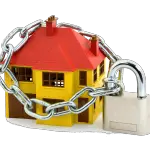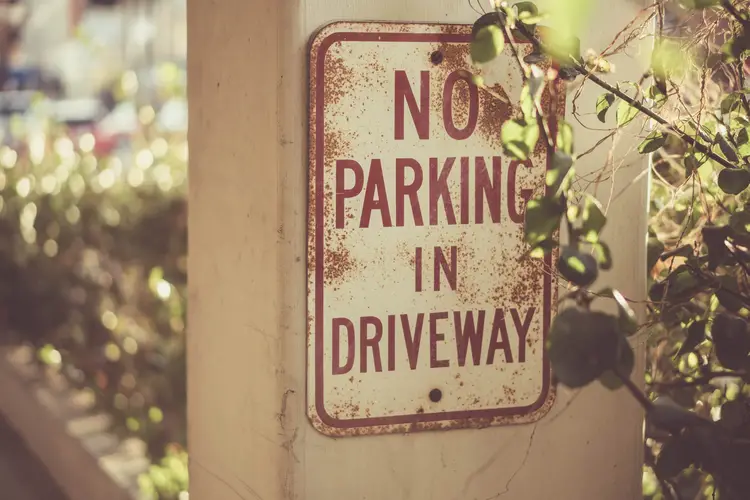
Has your search for a home brought you to the house? It may be the house ticks every single box on your list, but it has a shared driveway. So the important question is, should you buy a house with a shared driveway?
Only buy a house with a shared driveway if it has an easement for a right of way across it and there’s a shared driveway maintenance agreement and sinking fund to take care of the ongoing repairs and maintenance. Make enquiries of any disputes that may have arisen over the driveway with neighbours.
There are two types of shared driveway, which are:
- The driveway can be owned by one homeowner, but where all other users have a right of way over it.
- The driveway can be owned by all the users in equal shares where all owners have an equal right of way over the driveway.
In both types of shared driveway ownership, access over it is granted by way of an easement.
What is an easement?
An easement is the right by one landowner to make use of another piece of land for the benefit of his own land. For example, if you buy a house with a shared driveway, part of the area you drive over to access your house may belong to a neighbour.
Easements take many different forms. But in the case of a shared driveway the easement is a right of way over the land.
An easement that is attached to the land over which it relates get sold with the property. Which means that if someone else buys the house they will inherit the same rights of way over the land. The easement will be noted on the property’s title documents.
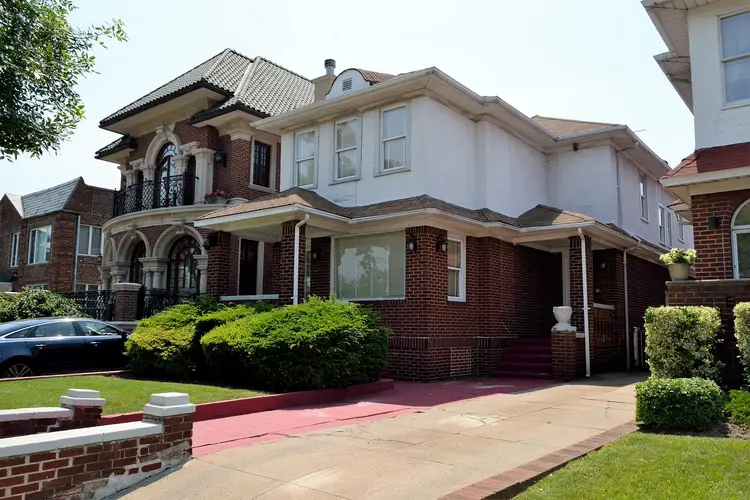
If the shared driveway is an unmade road or made with gravel this may not be as desirable as a shared driveway constructed using tarmac. Unmade driveways are prone to potholes forming. Gravel driveways can be problematic with neighbours wheel spinning and flinging stones that can cause damage.
If one neighbour continually blocks the shared driveway this may make it difficult or impossible for one of the other owners to reach their property with their car.
A shared driveway only works when the owners who share the driveway agree to contribute to its upkeep. If one of the contributors fails to pay their way, this will create friction and may lead to legal disputes.
Neighbour disputes are not good at the best of times, but can be made worse if you share a driveway. The very nature of a shared drive requires some form of collaboration. But if there’s been a falling out or a dispute, collaboration may be difficult or impossible to achieve.
It’s worth mentioning that the neighbours you get when you first buy may be delightful. But you never know who may move in next door and start sharing the drive with you.
If one or other of the shared driveway owners have children they may leave their toys in the driveway. It can be annoying to other driveway users to have to clear these up or to have to avoid them when driving across the shared driveway. Toys may also get driven over by accident, which may lead to disputes too.
6. One neighbour may own more cars than will fit on their private driveway may create an over-spill problem
One of the neighbours who share the driveway may have too many cars to fit comfortably on the part of the driveway they own. This may lead to them parking on their cars on the shared driveway.
This can also happen if one of the neighbours have visitors who have to park on the shared driveway because there’s not the apace on the owners private drive.
You don’t want to be having to constantly knock on your neighbours door to ask them to move their vehicles. This will create tension and leave you feeling unhappy.
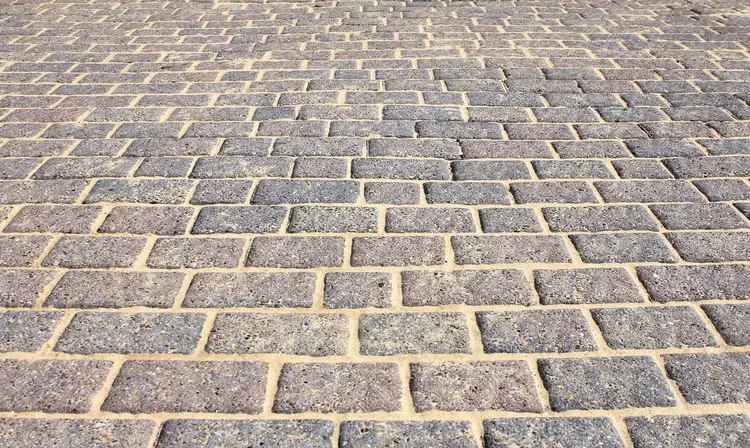
Its common place that no one has a right to park their car on a shared driveway. Unless they have prior approval from the other neighbour(s) or in exceptional circumstances. Anyone who parks on a shared driveway will either be blocking a right of way or will be parked illegally.
Common Law states that a shared driveway should be used responsibly and reasonably and so that all users can gain access. This means if you share a driveway you and your neighbours should leave access room for anyone else who uses it.
If a shared driveway on a property doesn’t have an easement you should not buy the property. Unless or until an easement is put in place. It’s possible that older houses may not have an easements for rights of way. But it might be a right of way has legally arisen over a period of time. This is usually after 20 years.
But you may not get a mortgage on the property if it doesn’t have the correct legal easements in place beforehand. Your solicitor will advise you about the legal position. If an easement has arisen as a result of the passing of time, it should be possible to create a legally binding easement to be registered with the right paperwork.
If the shared driveway has no easement it will need to be created in specific way by a solicitor to be legally enforceable. For an easement to be created the two pieces of land must be owned by different people.
You can get a mortgage on a house with a shared drive way. But the lender will want to know who is responsible for the driveway. The property must have the correct easements and rights of way in place to be mortgageable.
The lender may also insist that the shared driveway includes the necessary covenants to prevent obstruction of the shared access. Some lenders way need confirmation of a share driveway maintenance agreement too.
You can separate a shared driveway if the driveway is wide enough for at least two cars. If an easement exists for a right of way over the land for the shared driveway this will need to be released. Plus the land will need to be separated onto two separate titles.
If either or both houses have a mortgage the respective lenders will need to be informed about the change.
Be careful if you are thinking about putting a fence or a wall down the middle of the driveway as this may make it difficult to negotiate the drive. But a wall or fence may make it difficult or impossible to open your car doors.
The alternative is to agree to convert the front garden into a parking area so the shared driveway becomes less of a problem.
A house with a shared driveway can be more difficult to sell than a house with its own driveway.
- Many people who’ve had a bad experience owning a shared driveway often wouldn’t buy one again.
- There are other people who have family or friends who’ve had a bad experience with shared driveways who won’t buy one to avoid the same problems.
- Other people don’t like the idea of having to share the main access to a house.
- If the shared driveway is in bad repair this will make it much more difficult to sell.
At some point a shared driveway will need to be repaired and it will require ongoing maintenance. If the shared driveway doesn’t already have a fund for future maintenance, you should agree with the co-owners to put one together. It’s normal for the cost of repairs to a shared driveway to be shared equally between the users.
If you want to buy a house with a shared driveway, make sure the existing owners have a shared driveway maintenance agreement in place. If there’s no shared driveway maintenance agreement in place you should think carefully before buying the house.
- A legal description of the driveway.
- Details about how the driveway is shared.
- Details about how the costs will be shared between the users for ongoing repairs maintenance and long term upkeep.
- Specifics about a sinking fund for long term maintenance and improvements.
- An agreement relating to the removal of snow and ice.
- Terms for nonpayment of annual fees and contributions to repairs and other costs.
- Remidies available for non-payment of the shared driveway fund.
If all else is equal, the value of a property with a shared driveway will be slightly lower than a house that has it’s own private drive. The difference in value of the house with a shared driveway will be affected by how many other properties have shared driveways in the area.
If shared driveways are the norm then the value may not be adjusted at all. But if the house is the only one with a shared driveway, then the value is likely to be affected more.
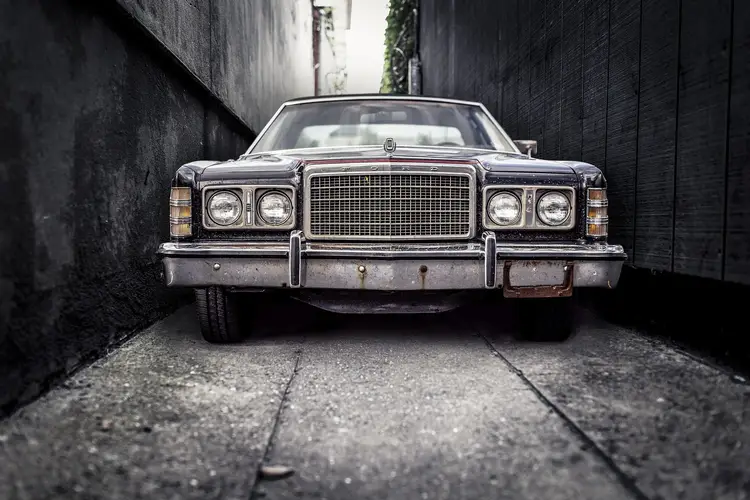
The best way to stop a neighbour from parking on the shared driveway includes the following steps:
- Check the title deeds to clarify what rules are contained in the easements and rights of way.
- Visit your neighbour to discuss the situation to resolve the problem amicably.
- If your neighbour is unwilling to engage in amicable discussions, speak to a solicitor to understand your options.
- Check your home insurance to see if this provides cover for legal disputes of this nature.
- Consider taking legal action against your neighbour.
- Sell your house and move to a home without a shared driveway. But be careful when you sell, as you will need to disclose any neighbour disputes during the conveyancing process.
Shared driveways are becoming more common as building plots are in short supply. Builders and developers squeeze more and more houses onto smaller plots and shared driveways provide a solution to use less land.
These shared driveways are used by two or even more properties. Whilst in principle shared driveways work well in more cases, they can also cause real problems. One such problem is the issue of driveway maintenance. Another is how quickly disputes can arise between neighbours.
You should not buy a house with a shared driveway where a maintenance agreement isn’t already in place. Also, if you drive at the property and the shared driveway is in poor repair, this will indicate a lack of a maintenance agreement. Think carefully before you buy a house with a poorly maintained shared driveway.
If you’ve enjoyed this article about “should you buy a house with a shared driveway” please share it on your favourite social media site.
Also, if you have any questions, please feel free to comment below too. Alternatively, if you need more help, please feel free to contact us on our contact us page here. Or join the discussion and ask your question in the property forum.


